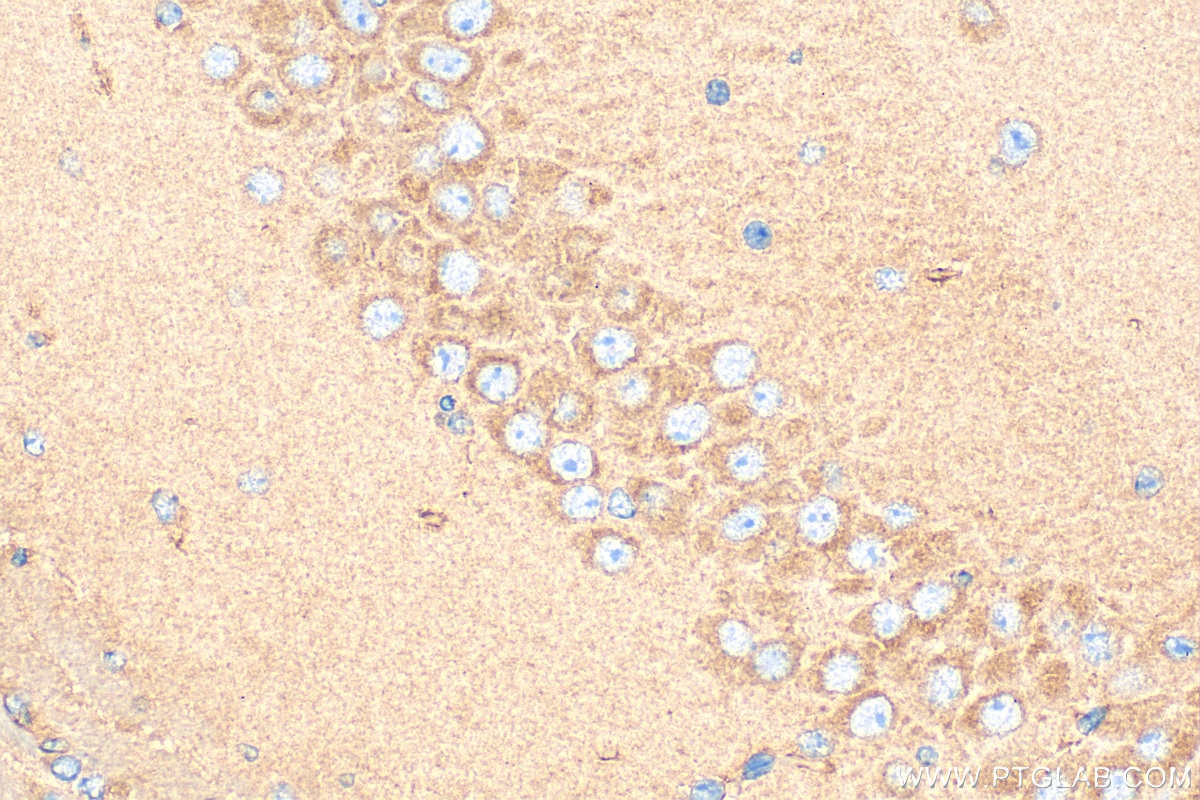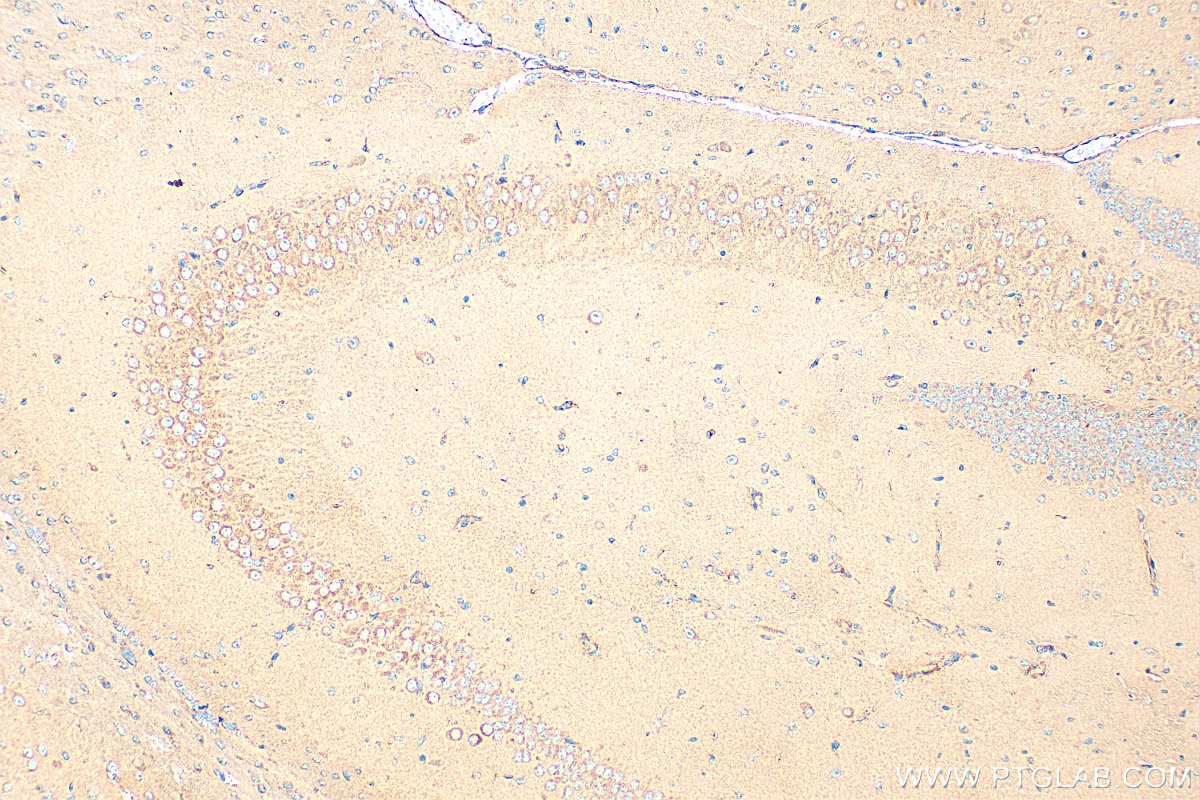Anticorps Polyclonal de lapin anti-LPPR5
LPPR5 Polyclonal Antibody for IHC, ELISA
Hôte / Isotype
Lapin / IgG
Réactivité testée
Humain, souris
Applications
IHC, ELISA
Conjugaison
Non conjugué
N° de cat : 18842-1-AP
Synonymes
Galerie de données de validation
Applications testées
| Résultats positifs en IHC | tissu cérébral de souris, il est suggéré de démasquer l'antigène avec un tampon de TE buffer pH 9.0; (*) À défaut, 'le démasquage de l'antigène peut être 'effectué avec un tampon citrate pH 6,0. |
Dilution recommandée
| Application | Dilution |
|---|---|
| Immunohistochimie (IHC) | IHC : 1:50-1:500 |
| It is recommended that this reagent should be titrated in each testing system to obtain optimal results. | |
| Sample-dependent, check data in validation data gallery | |
Informations sur le produit
18842-1-AP cible LPPR5 dans les applications de IHC, ELISA et montre une réactivité avec des échantillons Humain, souris
| Réactivité | Humain, souris |
| Hôte / Isotype | Lapin / IgG |
| Clonalité | Polyclonal |
| Type | Anticorps |
| Immunogène | Peptide |
| Nom complet | phosphatidic acid phosphatase type 2 |
| Masse moléculaire calculée | 35 kDa |
| Numéro d’acquisition GenBank | NM_001010861 |
| Symbole du gène | PAP2D |
| Identification du gène (NCBI) | 163404 |
| Conjugaison | Non conjugué |
| Forme | Liquide |
| Méthode de purification | Purification par affinité contre l'antigène |
| Tampon de stockage | PBS with 0.02% sodium azide and 50% glycerol |
| Conditions de stockage | Stocker à -20°C. Stable pendant un an après l'expédition. L'aliquotage n'est pas nécessaire pour le stockage à -20oC Les 20ul contiennent 0,1% de BSA. |
Informations générales
The lipid phosphate phosphatase-related proteins (LPPRs), also known as plasticity-related genes (PRGs), are a family of six transmembrane proteins that are enriched in brain. To date, five members have been identified (LPPR1-LPPR5). LPPR5 is an integral membrane protein linked to neuronal plasticity, which impedes NogoA- and LPA-mediated RhoA kinase signaling. LPPR5 modulates the Rho-GTPase pathway involved in cancer growth, vascularization, and the adaptive response to changes in the microenvironment. LPPR5 is pivotal in influencing growth, angiogenesis, and therapeutic resistance. (PMID: 26183180, PMID: 35328529)
Protocole
| Product Specific Protocols | |
|---|---|
| IHC protocol for LPPR5 antibody 18842-1-AP | Download protocol |
| Standard Protocols | |
|---|---|
| Click here to view our Standard Protocols |



